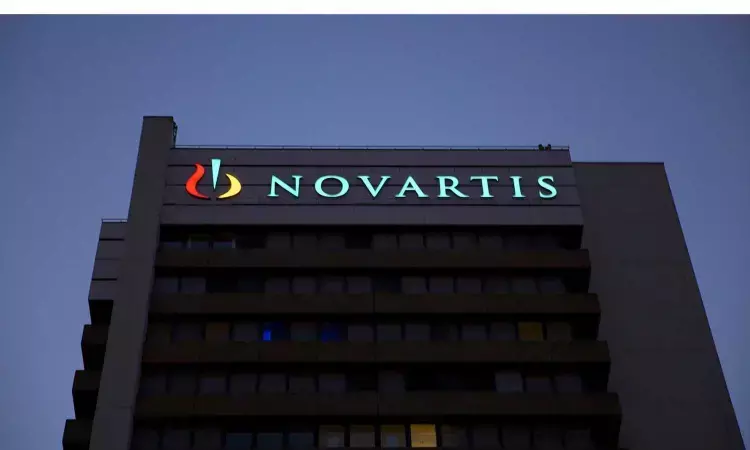- Home
- Medical news & Guidelines
- Anesthesiology
- Cardiology and CTVS
- Critical Care
- Dentistry
- Dermatology
- Diabetes and Endocrinology
- ENT
- Gastroenterology
- Medicine
- Nephrology
- Neurology
- Obstretics-Gynaecology
- Oncology
- Ophthalmology
- Orthopaedics
- Pediatrics-Neonatology
- Psychiatry
- Pulmonology
- Radiology
- Surgery
- Urology
- Laboratory Medicine
- Diet
- Nursing
- Paramedical
- Physiotherapy
- Health news
- Fact Check
- Bone Health Fact Check
- Brain Health Fact Check
- Cancer Related Fact Check
- Child Care Fact Check
- Dental and oral health fact check
- Diabetes and metabolic health fact check
- Diet and Nutrition Fact Check
- Eye and ENT Care Fact Check
- Fitness fact check
- Gut health fact check
- Heart health fact check
- Kidney health fact check
- Medical education fact check
- Men's health fact check
- Respiratory fact check
- Skin and hair care fact check
- Vaccine and Immunization fact check
- Women's health fact check
- AYUSH
- State News
- Andaman and Nicobar Islands
- Andhra Pradesh
- Arunachal Pradesh
- Assam
- Bihar
- Chandigarh
- Chattisgarh
- Dadra and Nagar Haveli
- Daman and Diu
- Delhi
- Goa
- Gujarat
- Haryana
- Himachal Pradesh
- Jammu & Kashmir
- Jharkhand
- Karnataka
- Kerala
- Ladakh
- Lakshadweep
- Madhya Pradesh
- Maharashtra
- Manipur
- Meghalaya
- Mizoram
- Nagaland
- Odisha
- Puducherry
- Punjab
- Rajasthan
- Sikkim
- Tamil Nadu
- Telangana
- Tripura
- Uttar Pradesh
- Uttrakhand
- West Bengal
- Medical Education
- Industry
Novartis Loses India Patent on Heart Failure Drug Vymada

New Delhi: In a major setback for Swiss drugmaker Novartis, the Indian Patent Office (IPO) has cancelled the patent for its heart failure drug Vymada (sold globally as Entresto), ruling that the invention lacked novelty and inventive merit.
The ruling, issued on September 12, 2025, by Deputy Controller of Patents and Designs D. Usha Rao, found the patent lacking in novelty and inventive step, according to various news reports. The patent in question, No. 414518, covered a “supramolecular complex” of sacubitril and valsartan.
Vymada is a combination medication that contains two active ingredients:
Sacubitril: A neprilysin inhibitor used in combination with valsartan as an adjunct to reduce the risk of cardiovascular death and hospitalization for heart failure in patients with chronic heart failure (NYHA Class II-IV) and reduced ejection fraction.
Valsartan: An angiotensin receptor blocker (ARB) that helps to relax blood vessels, allowing blood to flow more smoothly and the heart to pump more efficiently.
In its order, the IPO noted that Novartis had failed to establish any therapeutic advantage of the complex over existing formulations. “No experimental data, comparative studies or technical rationale have been provided to substantiate any enhanced efficacy,” the order stated, as quoted by Moneycontrol.
The drug has long been the focus of legal battles, with courts earlier restricting generic launches by Natco, Torrent Pharma, MSN Labs, and Eris Lifesciences following Novartis’ lawsuits. Several firms had already entered the market “at risk,” facing ongoing litigation threats. With the patent now revoked, “companies are free to launch, and more competitors are likely to enter, which will further reduce the cost of treatment,” an industry expert told The Times of India.
Vymada, commonly prescribed for heart failure and hypertension, is one of Novartis’ top-selling drugs, bringing in $7.8 billion globally in 2024. The September 12 ruling by the Deputy Controller of Patents and Designs is viewed as a step that could pave the way for lower-cost generics.
In her order revoking the patent on the “supramolecular complex” of sacubitril and valsartan — the key components of Vymada — D. Usha Rao observed that Novartis had not demonstrated any distinct therapeutic benefit of the claimed complex compared to existing drug formulations, Moneycontrol reported.
The revocation came in response to post-grant challenges filed by the Indian Pharmaceutical Alliance (IPA), a body representing leading domestic manufacturers, with IPCA and Micro Labs also contesting the patent at this stage.
In an order dated September 12, accessed by The Times of India, D. Usha Rao, Deputy Controller of Patents and Designs, observed:
"The patentee has failed to disclose any demonstrated advantages or technical advancement of the claimed supramolecular complex over the combination already disclosed in D1 (closest prior art, patentee's own earlier application). No experimental data, comparative studies or technical rationale have been provided to substantiate any enhanced efficacy. Further no improved therapeutic efficacy has been shown."
The order further stated:
"I have found that the grounds under Section 25(2)(b) - lack of novelty, 25(2)(c) - prior claiming, 25(2)(e) - lack of inventive step, 25(2)(g) complete specification does not sufficiently and clearly describe the invention. Hence the patent no. 414518 is revoked and the said case is disposed of under section 25(2) of The Patents Act, 1970."
Moneycontrol reports that the revocation caps nearly two years of litigation that began in December 2023, when the Indian Pharmaceutical Alliance (IPA) challenged the patent on grounds of lack of novelty, prior claiming, obviousness, and insufficiency of disclosure. After multiple recommendations for cancellation and a Delhi High Court-directed round of rebuttal evidence, the controller held a final hearing on August 20, which Novartis’ representatives did not attend. The order also noted that while Novartis’ earlier sacubitril–valsartan patent had expired in January 2023, the company sought to extend exclusivity by patenting a crystalline form of the drug — a move Indian firms opposed as an attempt at “evergreening.”
Mpharm (Pharmacology)
Susmita Roy, B pharm, M pharm Pharmacology, graduated from Gurunanak Institute of Pharmaceutical Science and Technology with a bachelor's degree in Pharmacy. She is currently working as an assistant professor at Haldia Institute of Pharmacy in West Bengal. She has been part of Medical Dialogues since March 2021.


